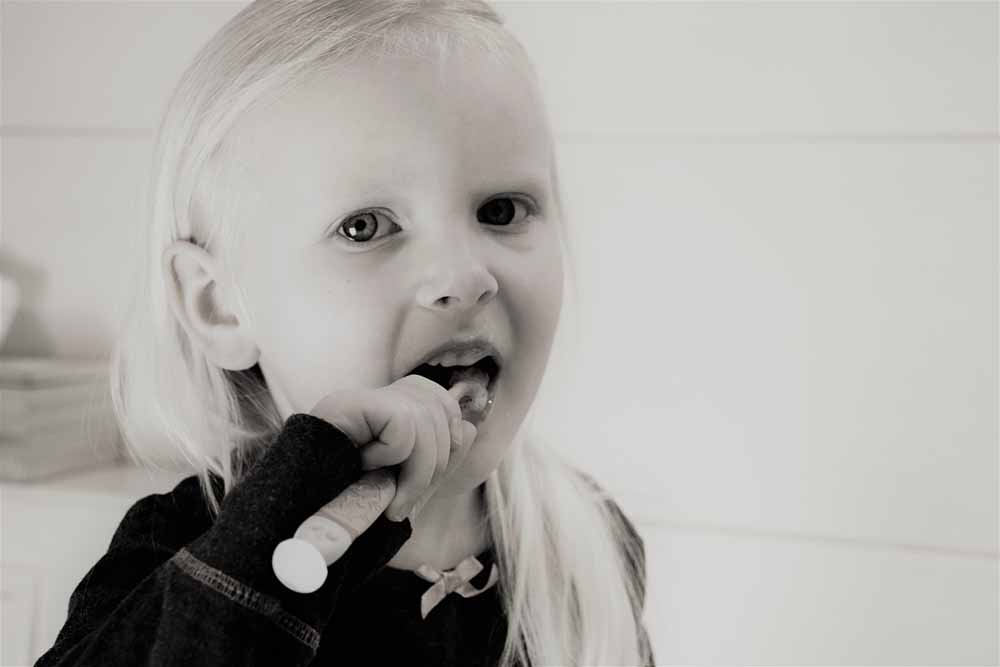It starts in the womb. Yes, it starts with good genetics. However, I have heard many accounts of women who state that the child “pulled all the calcium from my teeth during pregnancy.” Let us examine this further.
How Pregnancy Affects Dental Health
During pregnancy, the developing embryo needs calcium for developing long bones, and the source of its nutrition is its mother. There is no clear evidence that the embryo’s need for calcium dissolves the enamel from the mother’s teeth. If the calcium from the teeth dissolves, it enters the body through the throat into the stomach through the gastrointestinal system. The calcium then needs to be re-absorbed in the digestive tract to enter into the mother’s bloodstream and be available for the baby to absorb. If the baby pulls calcium from my teeth, we would have to visualize calcium dissolving from the tooth and going directly into the bloodstream.
I am not aware of a process where the unborn child pulls calcium from the teeth directly into the bloodstream and absorbs it through the placenta by way of the umbilical cord. It is understandable that as the embryo extracts the calcium it needs from the bloodstream by way of the placenta, that calcium is replaced in the mother by her nutrition.
In extreme cases, calcium can be withdrawn from the mother’s long bones. The teeth are not long bones, as they are attached to the jaw’s unique bones by tiny ligaments called the periodontal ligaments. So if the baby pulled calcium from the teeth, it would have to come through these ligaments into the jawbone and the bloodstream, or through the blood vessels inside the teeth, wearing down the inside of the teeth.
It is feasible that calcium could be drawn out of the upper and lower jaws to serve the developing embryo. However, the lower jaw (mandible) is like no other bone in the body. The dynamics of getting calcium out of this bone would be different than for the upper jaw because it is not fixed. It has a diarthrodial joint, meaning it articulates in two areas with two articular disks, one on the right and one on the left. Most joints in the body meet at only one point, so coordination is simplified. The lower jawbone has to coordinate its movement where movement in one joint affects the other joint movement. The movements are coordinated with mastication muscles, the tongue, the lips, and the teeth to produce the mouth’s complex tasks. There is no direct connection with the rest of the bones in the body. However, it is feasible that calcium can come from the bone marrow of the lower jaw into the bloodstream through the blood vessels.
The upper jaw (the maxilla) is connected directly to the skull. The upper jaw has less dense bone than the lower jaw (mandible) bone. The mystery of the reports from the mother’s embryo pulling bone from their teeth is further compounded by the fact that the maxilla and mandible are very anatomically different. Yet, most women report more damage to their upper or lower teeth. There is an explanation for the oral symptoms reported during pregnancy, and I will shed some light on what happens.
Estrogen and Gum Health
There are estrogen receptors in the gums (gingiva) that respond to increased estrogen levels by becoming more inflamed in the presence of plaque. In someone not performing proper hygiene, there will be an increased incidence of plaque buildup on their teeth and inflammation of the gums. Also, feelings of nausea and the inability to maintain adequate nutrition can affect the mother’s health. The pressure of the developing baby on the stomach sometimes leads to increased acid reflux, regurgitation, vomiting, and bringing acidic fluids into the mouth.
Acid becomes a major problem with pregnancy. Tests show that a more acidic environment leads to the breakdown and dissolving of enamel in the teeth. When a patient has drying of the mouth in combination with dehydration from vomiting, higher estrogen levels, more plaque from swollen gums, plaque buildup, regurgitation, and vomiting, it leads to increased acidity in the mouth. Acidity is the reason, along with improper oral hygiene, why some women lose enamel from teeth and speed up the decay of teeth that only had little or no decay before they became pregnant.
For anyone considering pregnancy, we recommend a trip to the dentist to ensure proper dental health.

